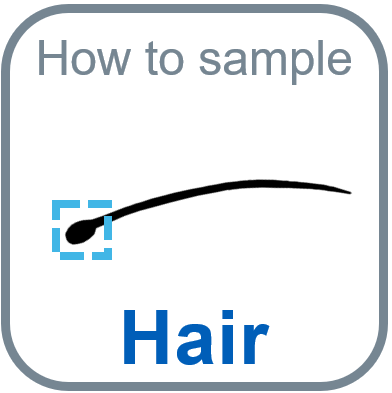Sample collection
Samples must be collected and packaged well for the tests to return a reliable result and prevent the need for repeat samples. Further information can be found on the MFT Laboratory Medicine website and in the Wythenshawe Hospital Laboratory Medicine handbook.

Dermatophytes
- Please collect into a Dermapak (black card packet) or a sterile universal, as sellotape and other stationary supplies may contain contaminating fungi
- Store at room temperature – many dermatophytes cannot survive in the fridge
- Scalp samples should be collected by hair plucking or scraping with a scalpel (collection using a toothbrush prevents microscopic examination)

Respiratory samples
Respiratory samples are a potential biohazard and must be packaged carefully for the protection of staff
- Tubes should be double-bagged, with a biohazard sticker placed on the outer ziploc bag
- Trap tubing must be replaced with a secure screw-top lid, in order to prevent leaks
- Category B transport boxes must be used for transport by road or between sites (but are not necessary within the hospital)

Biosafety Category 3 organisms
Samples from returning travellers, or patients who have previously lived abroad (even several years ago), can occasionally contain Biosafety Category 3 fungi, particularly the endemic mycoses such as Coccidioides/Histoplasma/Talaromyces. These require special precautions and equipment to be handled safely and prevent transmission to laboratory staff. Please note any relevant travel history on the referral form.
- Click here to read a case study about a dental sample submitted to us that was found to contain the endemic fungus Paracoccidioides (poster presented at ECCMID2022)



